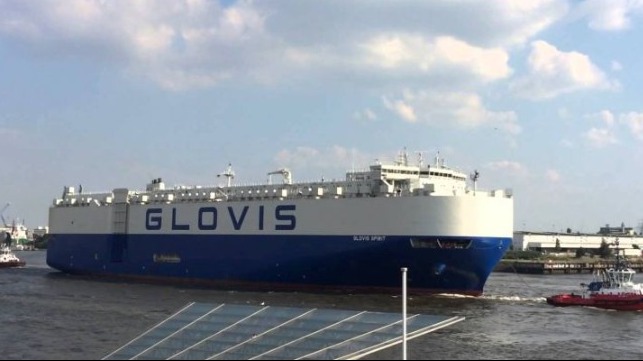
Hyundai Glovis, a logistics company within South Korea’s Hyundai Group is the latest shipping company to announce plans to expand into the emerging market for the transportation of new forms of energy. The company best known for its car carrier business, which moves more than 275,000 vehicles each year, confirmed reports that it has entered into a partnership with the trading company Trafigura to develop a business to ship ammonia and liquefied petroleum gas (LPG).
“With this contract as an opportunity, Hyundai Glovis, which will enter the gas transportation business in earnest,” the company said in its official announcement of the partnership. Hyundai Glovis said it “plans to concentrate its capabilities on building a hydrogen value chain by transporting ammonia and LPG to meet global demand.”
For this project, Hyundai Glovis plans to invest more than $170 million to build two VLGCs. The order for the ships is reportedly going to another group within Hyundai, the Hyundai Samho with the vessel scheduled for delivery in 2024. The new vessels are expected to be among the largest global gas carriers with a loading capacity of 86,000 m3.
Unlike conventional gas carriers that usually transport LPG, Hyundai Glovis said the new VLGCs will be specifically designed to transport ammonia, which requires specially designed cargo tanks. According to the company, there are only approximately 20 VLGCs currently capable of loading ammonia, which accounts for less than 10 percent of the total VLGC fleet.
They believe the market will develop quickly and are seeking to gain a first-mover advantage against the anticipated competition. Currently, ammonia, which is mainly used in the production of fertilizer and petrochemicals, is transported in small and medium-sized gas carriers with a loading capacity of 35,000 m3 or less. In the future, as ammonia increasingly becomes the basis for alternative power generation, Hyundai Glovis projects that the VLGCs it is planning will become an optimized ship for ammonia shipping.
Hyundai Glovis is paying particular attention to the marine transportation of ammonia, which is considered the most efficient hydrogen storage and transportation medium at the current level of technology. They noted that it can be more easily liquified compared to hydrogen and because ammonia is used today it has an advantage in that a basic infrastructure for transportation and storage had already been established in many countries.
Trafigura, as one of the world’s largest commodity traders, has been moving aggressively to explore future opportunities in hydrogen-related commodities and like Hyundai Glovis, has been seeking to stake out a leadership position. Among its other efforts in the area, Trafigura entered into an agreement in the summer with the German company Hy2gen to develop a study that quantifies the infrastructure and production demands for green ammonia to decarbonize the shipping industry.
SOURCE READ THE FULL ARTICLE
https://www.maritime-executive.com/article/hyundai-glovis-expands-into-gas-carriers-for-expected-ammonia-market